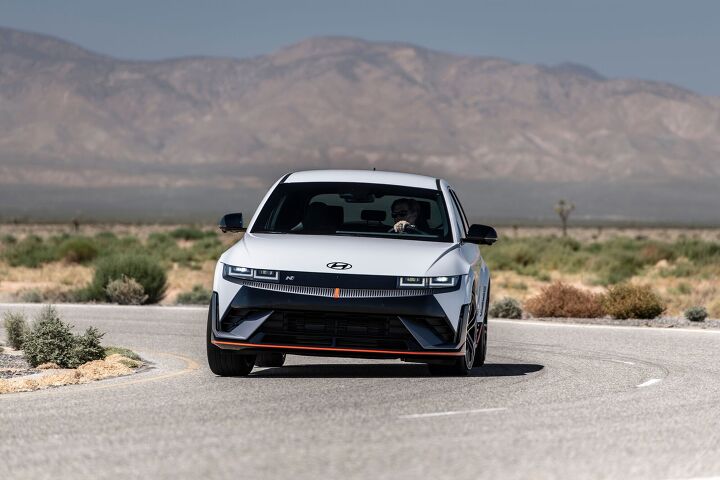LG's New Battery Tech Promises to Prevent and Shorten EV Fires

EV fires are one of the reasons detractors give for avoiding the vehicles, though they don’t flame up at any higher rate than gas models. New battery tech promises to reduce the number of EV fires, however, and one of the companies behind the technology said the components could become self-extinguishing in the future.
LG Chem said it developed a battery material that can help prevent fires and extinguish them when they do happen. The company published a paper in the journal Nature Communications, detailing a new development it calls a “Safety Reinforced Layer.” It uses a composite material that can change its structure under extreme temperatures to help reduce electrical resistance and isolate parts of the battery that cause fires. Once the high temps are no longer an issue, the changes reverse themselves.
LG’s testing showed that piercing conventional lithium cobalt oxide batteries caused fires 84 percent of the time, but adding its technology cut the rate of fires to zero percent. Nickel battery fires dropped from 100 percent to just 30, and the flames burnt out soon after igniting.
The company’s prior efforts failed to deliver a commercially viable product, but this most recent development is far more promising. LG Chem’s CTO, Lee Jong-gu, said, “This is a tangible research achievement that can be applied to mass production in a short period of time. We will enhance safety technology to ensure customers can use electric vehicles with confidence and contribute to strengthening our competitiveness in the battery market.”
[Images: oasisamuel via Shutterstock, Kia, Hyundai]
Become a TTAC insider. Get the latest news, features, TTAC takes, and everything else that gets to the truth about cars first by subscribing to our newsletter.

Chris grew up in, under, and around cars, but took the long way around to becoming an automotive writer. After a career in technology consulting and a trip through business school, Chris began writing about the automotive industry as a way to reconnect with his passion and get behind the wheel of a new car every week. He focuses on taking complex industry stories and making them digestible by any reader. Just don’t expect him to stay away from high-mileage Porsches.
More by Chris Teague
Latest Car Reviews
Read moreLatest Product Reviews
Read moreRecent Comments
- Lorenzo If it's over 30 years old and over 80k miles, and not a classic, it's a parts car, worth no more than 20% of original price.
- Dusterdude No mileage noted on a 33 year old car means likely well north of 300k + miles , along with issues noted , should equate to an ask price of less than $3k
- Ajla IMO, something like this really should be naturally-aspirated.
- Kjhkjlhkjhkljh kljhjkhjklhkjh Unless they are solid state batteries you BAN THEM. I like EVs... but EVs like to burn ... for days
- Kjhkjlhkjhkljh kljhjkhjklhkjh uh .. it looks like a VW golf got the mumps





































Comments
Join the conversation